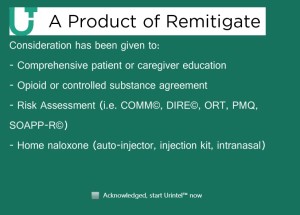Urine testing has now become a way of life for those prescribing chronic opioids and for patients required to comply with monitoring. A line from Toby Keith’s country song, Red Solo Cup, sums up that new lifeline requirement to succumb all too well. “…you’re not just a cup (No, no, God no); You’re my friend, yea (Lifelong)…” .
Incorrect use of these urine screens can be hurtful to honest patients. But with a newfound acknowledgement that urine tests can be helpful for patients and clinicians to validate honesty or unveil dishonesty ONLY if correctly interpreted, the last part of his lyric now rings true regarding that cup…“Thank you for being my friend”.
In the last couple of weeks there has been several engaging articles on the Internet specific to problematic urine testing by immuonoassay (IA), advocating for patients, questioning fair and accurate provider interpretation, and more. My most recent blog, Stark Realities of Urine Drug Test Orders and Payment went a step further and exposed potential scandalous practices by clinicians and outlined how third party payers are now responding with new policies that adversely affect appropriate pain and substance abuse disorder monitoring just to save money. For more on this see 4/13/2015 –Urine Drug Test Often Gives False Results; 4/21/2015 –When Drug Tests Go Wrong; 3/16/2015 –Pain Treatment Technology Update: An App for Improving Interpretation of Urine Drug Testing.
But now there’s a reprieve for providers and patients alike because of a new sophisticated software platform, Urintel.
In short, it’s time to rejoice because Urintel gives objective recommendations without bias!
The time has finally come, and with printable reports to boot, as Keith’s song puts it, “PROCEED TO PARTY!”
Perhaps after reading on, the new parody will be…
 My urine cup;
My urine cup;
You fill it up;
It is impartial…
If urine monitoring is done correctly, it can serve to improve patient safety, help to justify ongoing treatment with controlled substances to honest patients, and also help to identify patients in need of substance abuse counseling. The problem heretofore is that urine drug screens by IA, as aptly pointed out in all of the links above, is laden with risk for false negatives and positives – we can live with that as long as we call it what it is and know when to order definitive testing by chromatography to confirm and validate unexpected results, and to do what’s right for the patient. That means there needs to be an accurate real time assessment of what the IA results indicate, and no denials are acceptable when a clinician requests more accurate quantitative confirmation for a 1) good, 2) justifiable, and 3) documented reason. It is these three parameters that are generally missing which affords an excuse and opportunity for insurance payers to deny payment for confirmatory testing. Obtaining such definitive tests protects and supports the patient, provider (if audited), and creates a fair playing field on which everyone holds equal footing. Furthermore, patients need access to double check their clinician’s assessment of the urine screen interpretation in case wrongly accused of misconduct.
After years of frustration, and with help from two incredibly cross-talented and highly educated computer analysts, I have developed a software platform called Urintel™ in an effort to “REMITIGATE” the situation. And we did it! We solved a huge problem – there is no longer a need to guess about the IA urine results. The paradigm should shift to a standard so all test results are analyzed comprehensively. This would enable clinicians to make a fair and accurate assessment with resultant suitable decision-making outcomes regardless of the test results. Urintel is available and printable NOW for in-office PC and MAC platforms. And, a smart phone/tablet version will be out no later than end of May 2015 for patients, students, clinicians, or whoever wants the easy-to-understand intuitive technology.
Justification for ordering a more accurate test is at the clinician’s fingertips and should certainly be more than adequate to justify payment for urine tests by the Blues and other insurers.
I can’t think of any reason why a clinician (or his/her staff) wouldn’t take the literally 2 minutes to generate a comprehensive printable (and e-print) report that accurately assesses the IA urine test, documents what it means, interprets possible false or unexpected positive and negative findings, generates a comprehensive handout and explanation for the patient, provides justification to third party payers, and gets the provider off the hook if audited regarding their interpretation of an orderable test. SERIOUSLY, all this in 2 minutes! It’s like having a post-doctoral pain-trained PharmD clinician in a box!
It is available now for a free trial at remitigate.com and direct signup at urintel.com and will remain available with free access until May 31, 2015.
Eventually there will be a fee. Why? Because my dream is to provide and subsidize unbiased comprehensive and readily accessible clinical and technical support to help clinicians who have questions and request the much needed education, help, and guidance regarding such testing, with intent also to deliver pain medication therapeutics support – I have even bigger plans for the future (See Phenotel™ and Kinetel™ on remitigate.com to learn more about that.
Below are examples of the printable report and a comprehensive tutorial. As Toby Keith says, “PROCEED TO PARTY!”
Please provide feedback here so that others can benefit from your thoughts and experience!
An example Urintel™ report is available below by clicking the image…
Click on the icon below for tutorial/demo
If unable to access, it’s also available HERE on Youtube.




I’m a Westchester County Medicaid eligibility examiner. I have an MA-SSI caseload. Are there any thoughts about accepting Medicaid payment for Urintel, Phenotel, and Kinetel?
Hello Mindy,
That’s an interesting question! The money saved on drugs alone for patients that are filling prescriptions and diverting them would pay for Urintel 100’s, perhaps 1000’s, maybe even tens of 1000’s times over. Consider for example that a one month supply of OxyContin 40mg every 8 hours costs approximately $1000. If ten patients were diverting that prescription (and I can promise that’s low), that’s $10,000.00 per month that Medicaid pays for or $120,000.00 per year. Urintel costs $350.00 per year. So does a third party payer stand to benefit? You bet! But, getting an agency like Medicaid to pay the $350.00 would certainly be a paradigm shift. What they could and more likely would do is to require a comprehensive printable assessment by the provider in order to cover the cost of the urine test – that would mean the provider or the health care system would need to pay for Urintel. But the cost is low and the provider is being paid a fee to see those patients.
More and more non-government third party insurance providers are refusing payment for in-office IA urine test and for similar send-outs in large part because some providers have turned these tests into a money making schemes. But, there is utility for the IA test and it is far less expensive than definitive testing by chromatography, the latter of which has a very important role in drug screen monitoring. Chromatography testing will confirm if the patient is taking a prescribed medication, not taking that medication, or taking drugs other than prescribed. It also will test for drug metabolites which should clue the provider that if metabolites aren’t present, the patient is shaving the drug into the urine sample. That said, third party payers do have an interest to ensure that if they do pay for IA tests, they are ordered for appropriate patients, interpreted correctly, and that actionable outcomes result. Such actions could include stopping a drug because of non-compliance, justification for the more expensive chromatographic testing, continuing a drug, and referring appropriate patients for substance abuse counseling.
Kinetel and Phenotel are still in the development phase, so for now, these are not options.
This reporting feature is fantastic!
Thank you Dr. Linares – wait until you see what’s in store for Kinetel, especially with all the supportive literature!